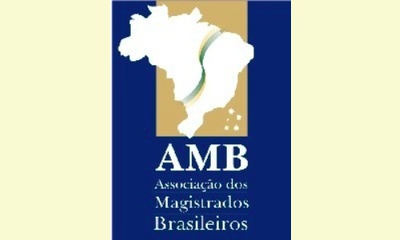|
|
Institutional Cooperation for Restorative Justice in Brazil
un articulo por Judge Leoberto Brancher, AJURIS Magistrate's School, Brazil
I believe the following Cooperation Agreement represents
great news for spreading the culture of peace in Brazil: 
click on photo to enlarge
INTER-INSTITUTIONAL COOPERATION PROTOCOL FOR THE
DIFFUSION OF RESORATIVE JUSTICE
RECALLING:
The UN Convention on the Rights of the Child, whose art. 40,
item 3, letter "b", recommends that children and adolescents
involved in the commission of criminal offenses are preferably
considered without resorting to judicial proceedings, to
assure them the full respect of human rights and the
guarantees provided by law;
The Resolution 2002/12 of the Economic and Social
Council of the United Nations, which laid out the basic
principles for the use of restorative justice in criminal matters,
while recommending its adoption by the Member Countries;
The Federal Law 12.594/2012 whose art. 35, inc. II
establishes the principle of "special judicial intervention and
the imposition of measures, favoring means of conflict
esolution, III establishes the principle of "priority for
measures or practices that are restorative and, whenever
possible, meet the needs of victims";
The Amendment No. 01 to Resolution No 125/2010 of
the National Council of Justice, which provides for the
introduction of restorative justice practices in the Brazilian
Justice System;
The technical Report of the Special Representative of
the Secretary General of the United Nations Violence against
Children, adopted by the General Assembly in October 2013,
which expressly recommends the widest dissemination and
implementation of restorative justice practices concerning
children and youth;
AND CONSIDERING:
The recognition shared by the undersigned institutions of the
need to create alternatives that promote greater sustainability
in the operations of the Justice System and correct care in
situations of children and adolescents with extreme social
vulnerability such as coping with conflicts, offenses, violence,
drug addiction and crime;
The recognition, also shared in the sense of the validity
of theoretical and practical propositions, of the "restorative
paradigm" of Justice, notably its ability to promote more
humane and friendly interventions based on participation and
sense of co-responsibility, as well as in the learning and
transformation of children, adolescents, their families,
professionalized networks, institutions and communities
involved in each case;
The convergence of the will of the parties, with a view to
these purposes, in the sense of opportunity to spread and
deepen the theoretical knowledge of Restorative Justice, as
well as encourage its practice and sharing of the learning
process in the best way possible:
RESOLVE to celebrate and present this PROTOCOL OF
INSTITUTIONAL COOPERATION FOR DISSEMINATION OF
RESTORATIVE JUSTICE, stating its purpose of joint action in
the following terms:
SECTION ONE - GENERAL PURPOSE - To promote the
dissemination of the principles and practices of restorative
justice as a strategy for resolution and pacification of conflict
situations, violence and criminal offenses;
(This article is continued in the discussion board)
(Click here for the original in Portuguese.)
|








|
DISCUSSION
No hay pregunta ligada a este article.
* * * * *
Comentario más reciente:
(The following is continued from the main article listed above.)
SECTION TWO - SPECIFIC OBJECTIVES - The achievement of the general objective of the present Protocol shall be pursued through activities such as:
1. SOCIAL MOBILIZATION AND CULTURAL DISSEMINATION, including the promotion of lectures, conferences and technical seminars, study groups, publications, stimulation of social networks, promoting good practice, exchange and sharing of experiences. These actions will be encouraged by the Executive Committee, which will present guides and references, always respecting the needs of each location, targeting actions to strengthen the basic alignment of current experiences in Brazil;
2. PROMOTION OF A Restorative FOCUS AND CULTURE OF PEACE, including the renewed discussion of policies, services and programs of assistance, especially in the area of childhood and youth, in its various applications, whether in education, welfare, health, security and justice, keeping in line with the participatory, humanizing, and responsibilizing paradigm of restorative justice, as well as the values of tolerance and solidarity which promote a culture of peace
3. TRAINING FOR HUMAN RESOURCES AND APPLICATION OF CONCEPTS OF RESTORATIVE JUSTICE AND PRACTICES, including training and lifelong learning activities aimed at the widest possible dissemination of theoretical concepts, mainly related to the paradigm shift that the Restorative Justice proposes at different levels of its implementation, and skills for conflict resolution, without prejudice to existing practices, research and evaluation, aiming at the creation of public policies in this area:
4. SUPPORT FOR IMPLEMENTATION OF PROGRAMS, including drafting of legislation, advising on technical and administrative management, and structuring and implementation of programs and plans of care grounded in a restorative paradigm strategy;
SECTION THREE - GOALS - Without prejudice to other initiatives being deployed for the above listed purposes, the signatory institutions undertake to meet the following goals:
1. 10 YEARS OF RESTORATIVE JUSTICE IN BRAZIL - Promote throughout the year 2015 activities that celebrate the 10 years of implementation of Restorative Justice in Brazil.;
2. DISSEMINATION - Facilitate the publication and wide dissemination and discussion of the contents and proposals of the Technical Report prepared by the Special Representative of the Secretary General of the United Nations Violence against Children, adopted by the General Assembly in October 2013;
3. . ... continuación.

|
|









